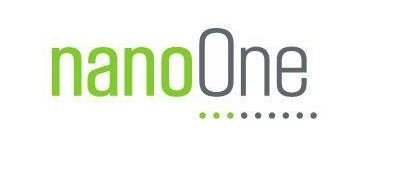
Nano One Technology performs well in Solid State Battery Collaboration with the University of Michigan
- Nano One is collaborating with the University of Michigan on the development of innovative solid-state battery technology.
- Nano One’s proprietary coated single crystal HVS cathode material is performing well in University of Michigan test programs.
- HVS is inexpensive, fast charging, cobalt free, and suited for solid-state battery configuration because it does not expand, contract, and stress the cathode-electrolyte interface like other materials
Nano One® Materials Corp. (“Nano One“) is a technology company with a patented and scalable industrial process for the production of low cost, high-performance cathode powders used in lithium-ion batteries, and, today announced positive updates from a collaboration with the University of Michigan leveraging Nano One’s advancements in cathode materials for solid-state batteries.
Professor of Materials Science and Engineering at the University of Michigan (UM), Richard Laine, Ph.D., said, “Initial results from our evaluations show that Nano One’s HVS materials perform well with our innovative agricultural waste-derived electrolytes and we look forward to advancing our collaboration to demonstrate a viable solid-state battery configuration.”
Professor Laine’s research group and several others are exploring in UM’s battery laboratories various aspects of battery components, designs, interfaces, and assembly of solid-state electrochemical energy storage devices.
This is the latest in a series of collaborations that Nano One has undertaken with global automotive original equipment manufacturers, leading battery manufacturers, and academic research groups.
“Evaluations of Nano One’s unique NMC 811 and HVS cathode materials are showing positive results with solid-state electrolytes in solid-state batteries,” said Dr. Stephen Campbell, CTO of Nano One. “Nano One sees great potential for growth in solid-state battery markets driven by automotive interest. We are scaling up our innovative processes and materials with a growing list of collaborators.”
The goal of developing better solid-state batteries is to improve safety, power, and energy density by replacing flammable liquid electrolytes with a solid interface between the cathode and an ultra-thin lithium metal anode. Nano One has numerous test programs underway with leaders in both industry and academia to test its lithium nickel manganese cobalt oxide (NMC) and high voltage spinel (HVS) in different solid-state battery systems.
HVS, also known as lithium nickel manganese oxide (LNMO), is inexpensive, fast charging, and cobalt-free. It is suited to solid-state batteries because it does not expand, contract, and stress the cathode-electrolyte interface like other cathode materials. Furthermore, Nano One’s proprietary coated single crystal powder protects the cathode from side reactions while allowing the rapid transfer of lithium ions between electrolyte and cathode.









